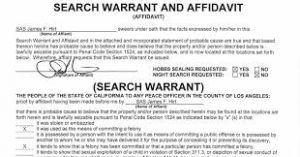Miranda warnings are heard in almost every television show about the criminal court system, and most people know that if you are placed under arrest the police are obligated to read you warnings regarding your rights. While a failure of an arresting officer to advise a defendant of his or her Miranda rights can result in the suppression of evidence in a criminal trial, the Appellate Court of Illinois recently held in People v. Norris that the same standards do not apply in statutory summary suspension hearings. If you are charged with a DUI or are facing a DUI related suspension of your license, you should meet with an Illinois DUI attorney as soon as possible to discuss the evidentiary standards that apply to your case.
The Norris Factual Background
Allegedly, the defendant was stopped for suspicion of DUI. During the stop, he admitted to drinking alcohol earlier in the evening. He was subsequently charged with DUI. Due to his refusal to submit to chemical testing at the time of his arrest, the defendant’s license was subject to a one-year statutory summary suspension. He filed a motion to rescind the suspension, arguing that the arresting officer lacked reasonable suspicion of DUI and failed to advise the defendant of the consequences of his refusal to submit to chemical testing. The defendant also filed a motion to suppress statements he made following his arrest due to the fact the arresting officer failed to advise him of his Miranda rights. The court denied the defendant’s motion and allowed the arresting officer to testify during the license suspension hearing that the defendant admitted to drinking on the night of his arrest. The defendant appealed.
Evidentiary Standard for Statutory Summary Suppression Hearings
On appeal, the defendant argued that the court erred in denying his motion to suppress. Specifically, he stated that the officer’s questions during the traffic stop constituted a custodial interrogation and should be inadmissible due to the lack of Miranda warnings. In turn, the State argued that a Miranda violation was not grounds for suppression of a statement during a statutory summary suppression hearing. In analyzing the issue, the court noted that the hearing in question is a civil hearing, and was subject to the same rules as other civil hearings.




